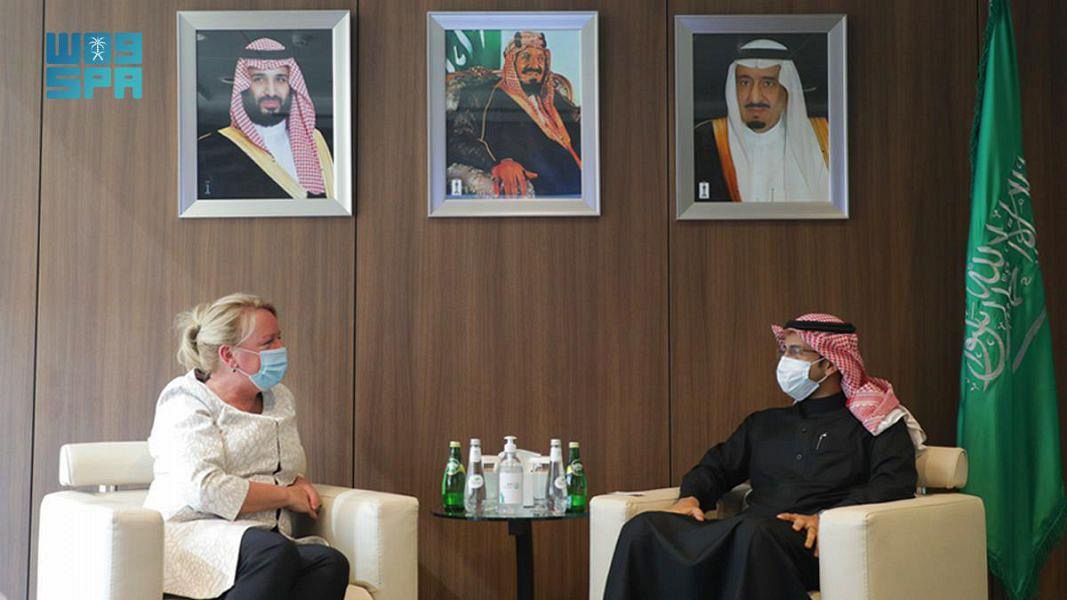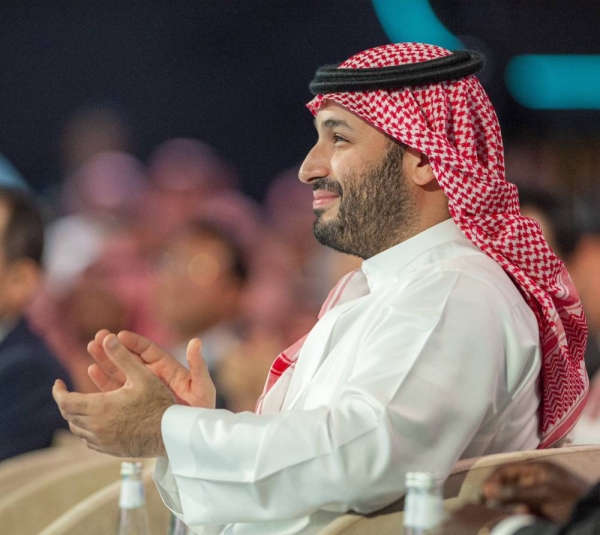
King Abdullah International Medical Center (KAIMRC) is a leader in biotech
KAIMRC’s research labs host a team of 70 post-doctoral scientists
RIYADH: As the KSA diversifies away from carbon energy to a more sustainable economy, biotechnology is a growing focal point and a key element of Vision 2030.
Biotech involves technology that uses biological systems and living organisms such as molecules to develop new products. This is a field where science meets commerce, as breakthrough medicines, biofuels, GM plants and so on are usually ‘conceived’ in a university or hospital lab and then taken to the market by private companies – a process that can take up to a decade.
ad
One KSA biotech leader is the King Abdullah International Medical Center (KAIMRC – pronounced ‘K-mark’) — the research arm of the National Guard’s Department of Health Affairs.
“Biotech is a vital and vibrant sector that has a major impact on health and the economy”, says Dr. Ahmed Alaskar, Executive Director, KAIMRC. “The KSA is developing alternatives to the oil economy, and biotech is a major new source. Plus it’s an important part of the knowledge economy. Our strategy is to develop innovative products out of our research — that could be therapeutics or diagnostics or medical devices.”
Such products start their life in the KAIMRC’s research labs, with its team of 70 post-doctoral scientists, supported by 20,000 staff in the National Guard’s six major hospitals and dedicated health sciences university. The goal is to take a potential product through a series of experiments and clinical trials, to the point where it can be handed over to the private sector, which will refine the product and ultimately bring it to the consumer market. One example is anti-venom remedies, for scorpion stings and snakebites, which were developed by KAIMRC and already have limited global distribution.
KAIMRC works with leading academic institutions around the world. “Oxford, Harvard, Johns Hopkins – you name it”, says Dr. Alaskar. “It’s all about medical research: toward vaccines, genetic research, therapeutics, drug screening and so on. And our academic publications have been increasing 20-30 percent annually – we have exceeded 1600 publications in peer-reviewed journals in this year alone.”
There is also close collaboration with leading health care companies such as AstraZeneca, Roche and Novartis – much of it based in KAIMRCs Medical Biotechnology Park, located within the vast National Guard compound in Southeast Riyadh.
It is a virtuous circle: the more companies that establish facilities in the Kingdom, the more will be attracted to invest — creating a biotech ecosystem that is projected to turn the KSA into a major exporter of health care products within the next five to ten years.
The activities of KAIMRC have been propelled by two health crises: MERS and Covid 19. In 2015, a team of KAIMRC scientists went to Oxford and collaborated with scientists there on a vaccine for the MERS virus, with trials and experiments continuing in the Kingdom – first on camels and then on humans. That study has now been submitted to an international peer-reviewed journal and should lead to a marketable product in due course.
The Covid 19 pandemic quickly shifted KAIMRC into a higher gear. “When Covid 19 hit the Kingdom in March 2020, KAIMRC revealed the whole genome sequence of the virus within 3 days”, says Dr. Alaskar. “Then we took that data and processed it using AI. We identified the sensitive targets in the virus, and which chemical molecules could be effective against those sensitive points – to kill the virus. We took our findings to clinical trial and the study has been submitted to a peer-reviewed journal.” The aim is to produce medicine that lessens the impact of Covid 19, as opposed to offering protection against it.
The KAIMRC is helping to position Saudi Arabia at the forefront of biotech with the forthcoming Global Summit for Medical Biotechnology, to be held in Riyadh in mid-September.
“We want to work with the international pharma industry to create a national strategy for biotech, and to find solutions to the health care challenges that are faced in Saudi Arabia and around the world”, says Dr. Alaskar. “Vision 2030 is giving us the opportunity to do just that.”










